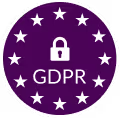There’s a lot riding on professional development skills. They are necessary for any company that wants to increase efficiency, promote competitiveness, and benefit from highly-trained, motivated employees. At the same time, a lot of effort is needed to organize, run, and evaluate them. But the leading edge of any employee professional development plan is the skills that enhance growth.
Understanding Professional Skills in the Workplace
Professional development is a distinct area of L&D, and so are the skills that are connected to it. We can define professional skills as those that support professional growth – i.e. long-term abilities that are important to an employee’s career. To contrast this idea, here are some skill types that are not professional:
- Company-specific knowledge such as that related to processes and other proprietary methods
- Personal skills such as relaxation and mindfulness
Professional skills can encompass both hard and soft skills. For example, learning how to program is a hard skill that, as long as the particular language is still in use, can double as a professional skill. Another interesting soft professional skill is time management, which applies to both personal and professional settings, and so can’t be easily defined in this respect.
Today’s Critical Professional Development Skills
Most organizations start the process of employee professional development with a skills gap analysis. But if you are interested in adding some of the abilities that many HR teams are focusing on right now, here is a selection of today’s popular professional development skills.
Communication Skills
One of the most complex and important of any skill category is that of communications. Communication skills come into play at various levels of the organization. For instance, it’s often the case that an employee will use different styles of communication for subordinates, peers, managers, and clients.
In addition, there are numerous types of communication skills, including;
- Written – reports, emails, marketing collateral, technical papers
- Spoken – commands, requests, explanations, small-talk
- Presentational – a mix of spoken, written, and (in some cases) artistic abilities
- Non-verbal – body language, facial expressions, gestures, tone of voice
With such a wide range, communication skills training is relevant to basically every employee. There is little chance that a particular worker excels in every category. For this reason, communication courses can be ongoing and are highly suitable for a coaching engagement.
Problem-Solving Skills
Another skill that is universally important is problem-solving. From the CEO down to a new hire, everyone runs into workplace problems. A worker who can deal with challenges quickly and effectively can be as essential as the flashiest salesperson or most intelligent technologist.
Learning how to solve problems, on the surface, can be taught through methods such as the IDEAL framework. But more fundamentally, the ability to tackle difficulties throughout a person’s career is greatly enhanced by adopting the Growth Mindset. It was specifically developed in view of people who see problems as learning opportunities, an attitude that reduces much of the stress and rush to judgment that can harm the creation of optimal solutions.
Change Management
Once a problem has been solved, it can often lead to significant organizational change. But there are many other instances where change management is required, for instance, upon launching a new product, implementing a new strategy, or dealing with a new process.
In each case, certain frameworks must be used, which are often proprietary. But they usually depend on a set of change management processes that in turn require certain skills. For instance:
- Goal setting – creative thinking, teamwork
- Obtaining buy-in – communication, particularly presentational and negotiation abilities
- Planning – organization, critical thinking, time management
Emotional Intelligence
Emotional intelligence in the workplace is two-sided:
Employees must be aware of their own emotions so that they can “self-correct”. This may involve being more considerate of how others’ feelings are affected by the employee’s attitude towards them. For instance, workers should always be polite and not show tangible preferential treatment depending on personal relationships (or lack thereof). Similarly, employees should take a professional approach to any criticism by trying to see it from a neutral standpoint.
Workers should also pay attention to the emotions of others. This might include being diplomatic when delivering criticism, and giving other employees some leeway when they are under stress. At the same time, emotional intelligence is a competitive tool. By understanding the motivations of sales prospects, existing clients, and decision-makers, employees can adjust their strategies and improve their own performance.
Teamwork Skills
Emotional intelligence and teamwork are similar in that they are both “two-sided”. An employee who is experienced at collaboration understands that they bring two kinds of activity to the table.
- Interactive abilities (AKA affiliative skills) result in optimal cooperation within the group. They include communication, critical thinking, and professionalism.
- Independent abilities (AKA personal skills) permit the employee to complete their assigned tasks. They include organization, planning, and creative thinking.
Whenever a group effort is involved, coaching is often the way to go when improvement is needed. A neutral coach will be able to see certain dynamics which might not be apparent to a biased or less experienced advisor.
Leadership Skills
There is some degree of confusion about the true nature of leadership. In the past, leadership and place in the hierarchy were considered to be the same. If you were high up in the organization, you were a leader.
But this “positional leadership” concept is no longer considered accurate. A leader can be someone who decides on a corporate strategy, but it can also be a veteran employee who guides new hires. A leader is simply a person who inspires, advises, and makes sure that the job gets done.
In light of this, a leadership development program should account for employees at all levels. Any worker who has the natural talent for leadership and is interested in building associated skills should be included in leadership development.
The Problem with Building Professional Skills in the Workplace
As you’ve noticed, “skills”, and not “skill”, are frequently discussed by HR professionals. That’s because it takes multiple abilities to succeed in the modern workplace. Gartner explains that IT, finance, and sales roles for US workers require an average of approximately 17 skills, and that number is only projected to increase.
For reasons like this, you can expect professional development to be continuous. But the task of HR in this situation, particularly for a large company, is a definite challenge. HR needs to:
- Analyze the skill requirements for individual employees
- Arrange L&D courses for each employee according to the skills they need
- Track-related performance changes
- Keep this process going throughout the employee lifecycle
How to Drive Professional Growth
The answer to this challenge is a talent development platform. Through an intuitive interface, such platforms deliver personalized L&D courses and an associated range of critical functions. Through the same platform, HR teams can:
- Choose from a wide range of professional development courses
- Source specialist training experts from a global database
- Set goals, monitor performance, and evaluate outcomes
- Enable access for and input from stakeholders across the organization
With one technology, talent development platforms allow HR/L&D professionals to provide optimized and customized learning experiences to employees at any level, and in any size of company.
Ready to turn insights into impact?


















